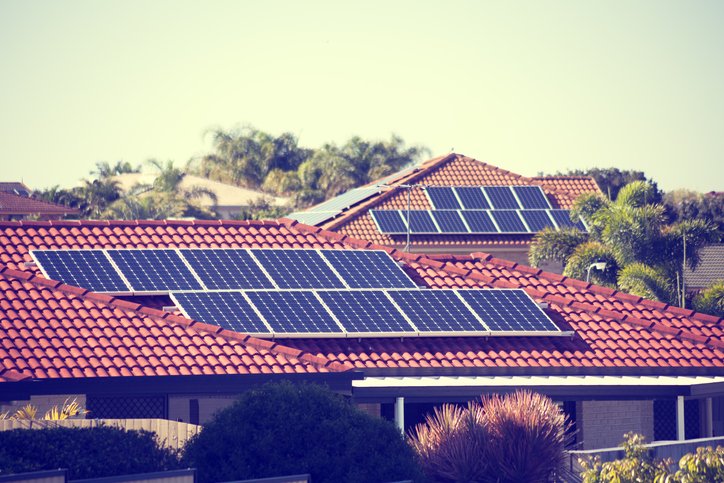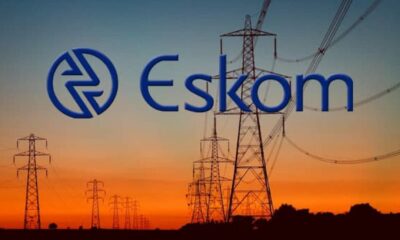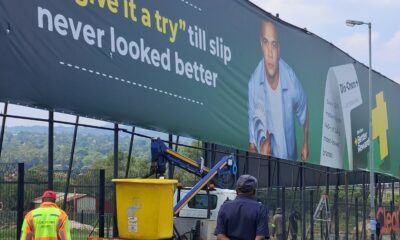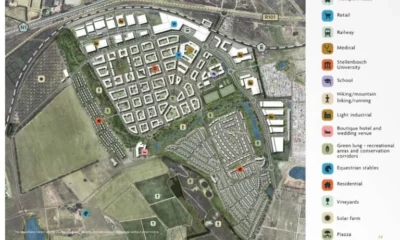News
Solar System Registration in South Africa: What You Need to Know and Why It Matters

Eskom, City Power and Nersa say it’s about safety, stability and planning, but mistrust and confusion remain
For many South Africans, installing solar panels has become a quiet act of defiance and survival. Years of rolling blackouts and rising electricity costs have pushed thousands of households and businesses off the traditional Eskom grid and into the arms of solar installers.
But now, those same households are being told: register your system or risk penalties. The call is coming not just from Eskom, but also from local metros like City Power and Tshwane.
Why is registration necessary?
At the heart of the campaign is safety. Eskom and municipal utilities say unregistered solar setups pose a real danger—not just to infrastructure, but to people.
“If a technician shuts down power for repairs but doesn’t know there’s a live solar generator feeding electricity back into the line, the consequences can be deadly,” explains Carel Ballack, president of the Association for Renewable Energy Practitioners.
Even small home solar systems, if grid-tied and unregistered, can cause power surges, phase imbalances and equipment damage. City Power spokesperson Isaac Mangena says registration ensures that every system is installed properly and complies with safety regulations. “It protects both our customers and the infrastructure,” he says.
In short: they need to know what’s plugged into the national and municipal grids, because every unaccounted system is a risk.
But is this just a new way to tax solar users?
That’s the big question circling on social media. After all, South Africans have become wary of anything that smells like a new fee. With electricity prices already sky-high, and load shedding still a reality, many fear that Eskom and municipalities want to track solar systems just so they can slap new tariffs on them.
But Ballack says the intention isn’t taxation at least not yet.
“Nersa, the energy regulator, uses solar registration data to help plan the country’s future energy mix,” he explains. “If we don’t know how much solar is out there, we can’t properly plan how much wind, coal or nuclear we still need.”
Still, Ballack admits that in theory, registration could one day be used to justify taxes or fees, though that would depend on individual municipalities and their approved tariffs.
Understanding the bigger picture
Here’s something many people miss: electricity in South Africa is now considered a human right, which means the poorest households are entitled to free basic electricity. That’s good policy, but it comes with a cost.
“There’s a percentage of the population that doesn’t pay for electricity at all,” says Ballack. “So those who can afford to pay are now carrying the burden for everyone else.”
In that context, the registration push isn’t just about safety. It’s about visibility, control and fairness. If you’re running a hybrid or grid-tied solar system, City Power wants to know, because your setup affects how they plan power distribution for everyone else.
If you register, can you sell power back to the grid?
Eventually, yes. That’s where bi-directional meters come in. These meters allow households to feed unused solar power back into the grid and get paid for it.
But there’s a catch: you have to pay for the meter and installation yourself, and the feed-in tariff system isn’t up and running yet. City Power says it’s still busy appointing a service provider, and once that happens, it could take four to six months before implementation begins.
What if you don’t want to sell power, do you still need to register?
Yes. City Power, Tshwane and other metros insist that all solar PV systems connected to the grid—whether they feed power back or not, must be registered.
Mangena is clear: even if you’re not exporting energy, your system affects the grid. “We need full visibility of what’s connected,” he says.
Public reaction: Growing resistance and confusion
The push for solar registration has sparked widespread debate, especially online. Some South Africans say they understand the logic, but others argue the move feels like micromanagement or a prelude to another form of “Eskom control.”
On Facebook groups and community forums, users have asked:
-
Will I be fined if I don’t register?
-
What happens if I’m off-grid completely?
-
Is this a first step toward taxing solar independence?
The answers aren’t always clear and municipalities have done little to help clear the fog. While City Power and Eskom have released statements, public outreach has been limited. For now, the rules apply mostly to grid-tied or hybrid systems, not completely off-grid setups. But that could change.
Final word: This isn’t the end of the solar story
South Africa’s energy landscape is changing fast. What began as a load-shedding workaround has now become a national infrastructure issue. Solar isn’t just personal anymore, it’s political.
So while registration might seem like a small bureaucratic chore, it’s actually part of a much bigger question: Who controls South Africa’s energy future and who pays for it?
If you’re one of the thousands investing in solar to power your home or business, stay informed. Understand your rights. And yes, register your system, not just because they tell you to, but because the grid we all rely on needs to evolve safely and smartly.
And hopefully, one day, you’ll be paid for the power you give back.
Need to register your solar system?
Contact your municipality or visit your utility provider’s website for solar PV registration forms and requirements.
{Source: The Citizen}
Follow Joburg ETC on Facebook, Twitter , TikTok and Instagram
For more News in Johannesburg, visit joburgetc.com


























